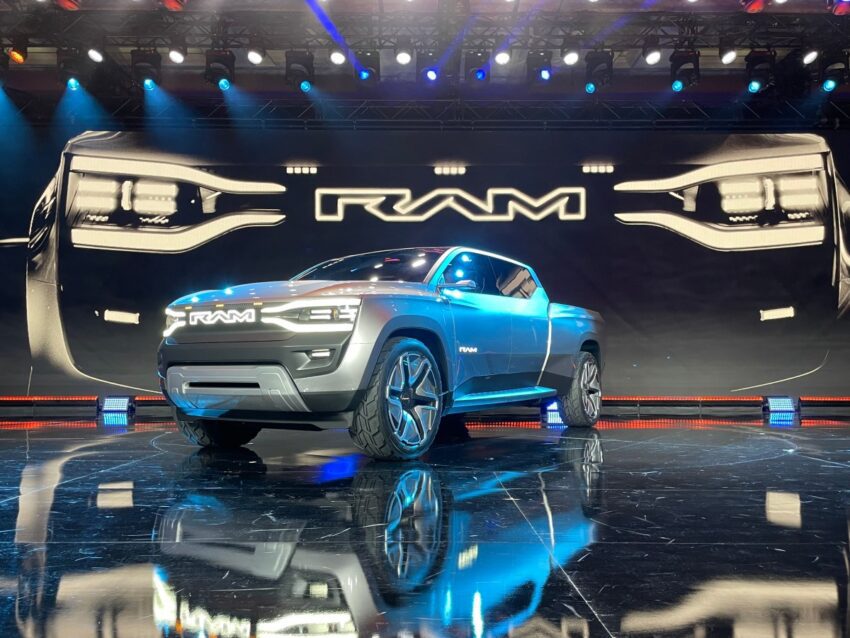
ram ends ev pickup truck plans Stellantis has announced that it will cease the development of its battery-electric full-size pickup truck under the Ram brand, citing insufficient demand for such vehicles.
ram ends ev pickup truck plans
Background on Stellantis and Ram
Stellantis, formed in January 2021 from the merger of Fiat Chrysler Automobiles and PSA Group, is one of the largest automotive manufacturers in the world. The company encompasses a diverse portfolio of brands, including Jeep, Dodge, Chrysler, Peugeot, and Citroën, among others. Ram, a division of Stellantis, has carved out a significant niche in the full-size pickup truck market, known for its rugged performance and innovative features.
As the automotive industry increasingly pivots towards electrification, many manufacturers have announced ambitious plans to develop electric vehicles (EVs). Ram was no exception, initially unveiling plans for a battery-electric pickup truck to compete in a market that has seen growing interest from consumers and manufacturers alike. However, the recent decision to halt these plans raises questions about the future of electric pickups and the broader implications for Stellantis.
Reasons for Halting Development
The primary reason cited by Stellantis for discontinuing the Ram electric pickup project is low demand for full-size battery-electric trucks. This decision reflects a broader trend in the automotive market, where consumer preferences have not aligned with manufacturers’ expectations regarding the adoption of electric pickups.
Market Demand and Consumer Preferences
Despite the increasing popularity of electric vehicles overall, full-size pickups have traditionally been associated with power, performance, and utility, attributes that consumers often prioritize. Many potential buyers in this segment are still hesitant to transition to electric alternatives, primarily due to concerns about range, charging infrastructure, and the towing capacity that full-size trucks are known for.
Market research has indicated that while there is a growing interest in electric vehicles, the full-size pickup segment remains particularly challenging. Consumers often rely on their trucks for heavy-duty tasks, and the current electric offerings have not yet fully addressed these needs. As a result, Stellantis has opted to redirect its resources towards other projects that may yield a higher return on investment.
Competitive Landscape
The competitive landscape for electric pickups is evolving rapidly. Companies like Ford, with its F-150 Lightning, and Rivian, with the R1T, have made significant strides in the electric pickup market. These vehicles have garnered attention and sales, showcasing the potential for electric trucks. However, Stellantis may have assessed that the competition is too fierce and that the market is not yet mature enough to support another entry.
Implications for Stellantis and the Automotive Industry
The decision to halt the Ram electric pickup project has several implications for Stellantis and the automotive industry as a whole. It signals a cautious approach to electrification, particularly in segments where consumer demand remains uncertain.
Resource Allocation
By discontinuing the electric pickup project, Stellantis can reallocate resources to other initiatives that may offer more immediate benefits. This could include enhancing existing models, investing in hybrid technology, or focusing on smaller electric vehicles that may attract a broader audience. The company may also choose to invest in research and development for future electric models that align more closely with consumer preferences.
Impact on Brand Image
Ram’s decision to step back from the electric pickup market could have implications for its brand image. As consumers increasingly prioritize sustainability and eco-friendliness, the absence of an electric offering may lead some to perceive Ram as lagging behind competitors. However, Stellantis may argue that the decision reflects a pragmatic approach to market realities rather than a lack of commitment to electrification.
Stakeholder Reactions
The announcement has elicited a range of reactions from stakeholders, including industry analysts, consumers, and environmental advocates.
Industry Analysts
Industry analysts have expressed mixed feelings about Stellantis’s decision. Some view it as a prudent move, given the current market conditions, while others see it as a missed opportunity. Analysts note that the electric vehicle market is still in its infancy, and companies that invest early may reap long-term benefits as consumer preferences evolve.
Consumer Sentiment
Consumer sentiment regarding electric pickups is complex. While some consumers are eager for electric alternatives, many remain loyal to traditional gasoline-powered trucks. The decision by Stellantis may resonate with those who prioritize performance and utility over sustainability. However, it could also alienate environmentally conscious consumers who are looking for more options in the electric vehicle market.
Environmental Advocates
Environmental advocates have expressed disappointment at the news, emphasizing the need for more electric options in the pickup segment to reduce emissions and promote sustainable transportation. They argue that the automotive industry must accelerate its transition to electric vehicles to meet climate goals and reduce reliance on fossil fuels.
The Future of Electric Pickups
While Stellantis has decided to halt its electric pickup project, the future of electric pickups remains a topic of significant interest and debate. Several factors will influence the trajectory of this market segment.
Technological Advancements
Technological advancements in battery technology, charging infrastructure, and vehicle performance will play a crucial role in shaping the future of electric pickups. As battery technology improves, electric trucks may be able to offer the range and performance that consumers expect from traditional pickups. Additionally, the expansion of charging networks will alleviate concerns about range anxiety, making electric pickups more appealing to a broader audience.
Consumer Education and Awareness
Consumer education will also be essential in driving the adoption of electric pickups. Many potential buyers may not fully understand the benefits of electric vehicles, including lower operating costs and reduced environmental impact. Manufacturers and industry stakeholders will need to invest in marketing and education initiatives to inform consumers about the advantages of electric pickups.
Government Policies and Incentives
Government policies and incentives will continue to play a significant role in shaping the electric vehicle market. Many countries are implementing stricter emissions regulations and offering incentives for electric vehicle purchases. These policies can encourage consumers to consider electric pickups as viable alternatives to traditional gasoline-powered trucks.
Conclusion
Stellantis’s decision to halt the development of its Ram electric pickup truck reflects the complexities of the current automotive landscape. While the company is stepping back from this particular project, the broader conversation about electric pickups is far from over. As the industry continues to evolve, stakeholders will need to navigate consumer preferences, technological advancements, and regulatory pressures to determine the future of electric vehicles in the pickup segment.
Source: Original report
Was this helpful?
Last Modified: September 13, 2025 at 4:37 am
0 views















